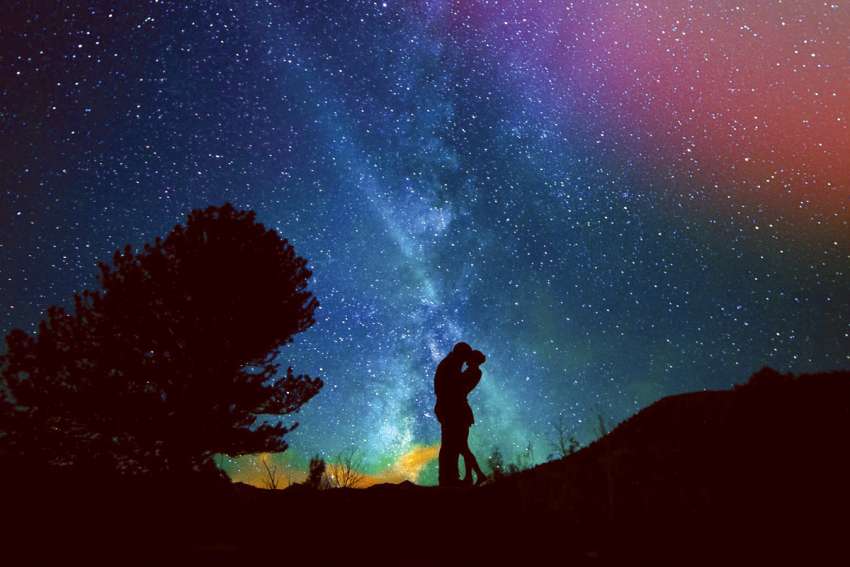Humans walk in mystery: the mystery of God, of ourselves and of the relationship between us. Our yearning for God, and our encountering the mystery of God, can be felt, named, experienced, studied and learned about. This is not like a murder mystery or puzzle we have yet to figure out, but will one day. It’s not an excuse for not knowing how to answer a question that’s too complex or too basic for us, or for compelling others to unthinkingly do what we say. Mystery isn’t at odds with learning, study or growth. Quite the opposite, as it’s the “ants in the pants” for all of these.
But all our learning will never be able to relieve the mystery. So, how can we find our way? What do we do with our built-in yearning to know God and ourselves?
This mystery evokes awe. That awe means it’s uncomfortable when we come face-to-face with the mystery. Ignoring or running away from it are immediately appealing. Sometimes we have to stay and face it. Perhaps through a crushingly terrible experience, as with Dorothy Day who was shattered by encountering not just deep suffering, but the suffering that people deliberately inflict on one another. Or through a transcendently good experience, like discovering with sudden certainty that we’re loved, or being confronted by radiant beauty.
Here’s an example of the last one. On a moonless night in a rural mountain monastery during a residential theology course, the gathered students sat silently beneath the astonishing array of night stars. Together they faced the mystery of their tiny selves before such immense splendour and unreachable depth. Eventually, a seminarian remarked quietly, “The dogmas we’ve been studying are like the stars. They help hold everything in place, so we can bear the mystery and get to know it.”
The D-word. Dogma, for the second time in this column. We might think of dogmas (if we think of them at all) as boring, rigid or pointless. But then, we can also spend months or years without ever noticing the Milky Way. Reality brings us to the stars, and necessity brings us to dogma. Dogma is human, but with the aim of illuminating and safeguarding the human encounter with ultimate reality. Mystery can’t be contained, but it can be denied or contravened.
The Church describes dogma as a “light along the path of faith” to “illuminate it and make it secure” when something misleading emerges (CCC 88). For example, when someone says God is no more than a manifestation of human experience, Catholic dogma reminds us that God created humanity out of nothing. Like the stars that shine in their places, dogmas redirect us when we wander away from the God of Jesus Christ. They’re meant to protect our experience of who God is.
God truly reveals and gives Himself in what He does, and yet, in His essence, He’s beyond what we can know. For us humans too, we come to know each other in our interactions, but we remain a mystery to ourselves.
Dogmas set boundaries to our intellect and set our vision straight. Starlight can help us find our way on Earth and the dogma-light can help us understand ourselves and our afflictions and find the cure. We can lose the mystery of God and ourselves either by forgetting or disdaining these lights or by trying to capture or control them. When we lose the majesty of the mystery of "the other," then domination, possession and violence necessarily follow. We get smaller, narrower and more constricted. We end up lost and miserable, often without even knowing. We become de-humanized, although we’re created to be divinized.
It’s not only today’s generation, but every generation, that can get tricked into thinking rejection of God leads to freedom or that smart people think their way out of dependence on God. When we learn to bow to God, we learn not to bow to anyone or anything else. The closer God comes to us (and us to God), the more open and free we are and the more we experience God as mystery.
Perhaps that’s what my mother realized in her restlessness with her teacher’s response. Encounter with the mystery of God doesn’t shut us down, but opens us up.

